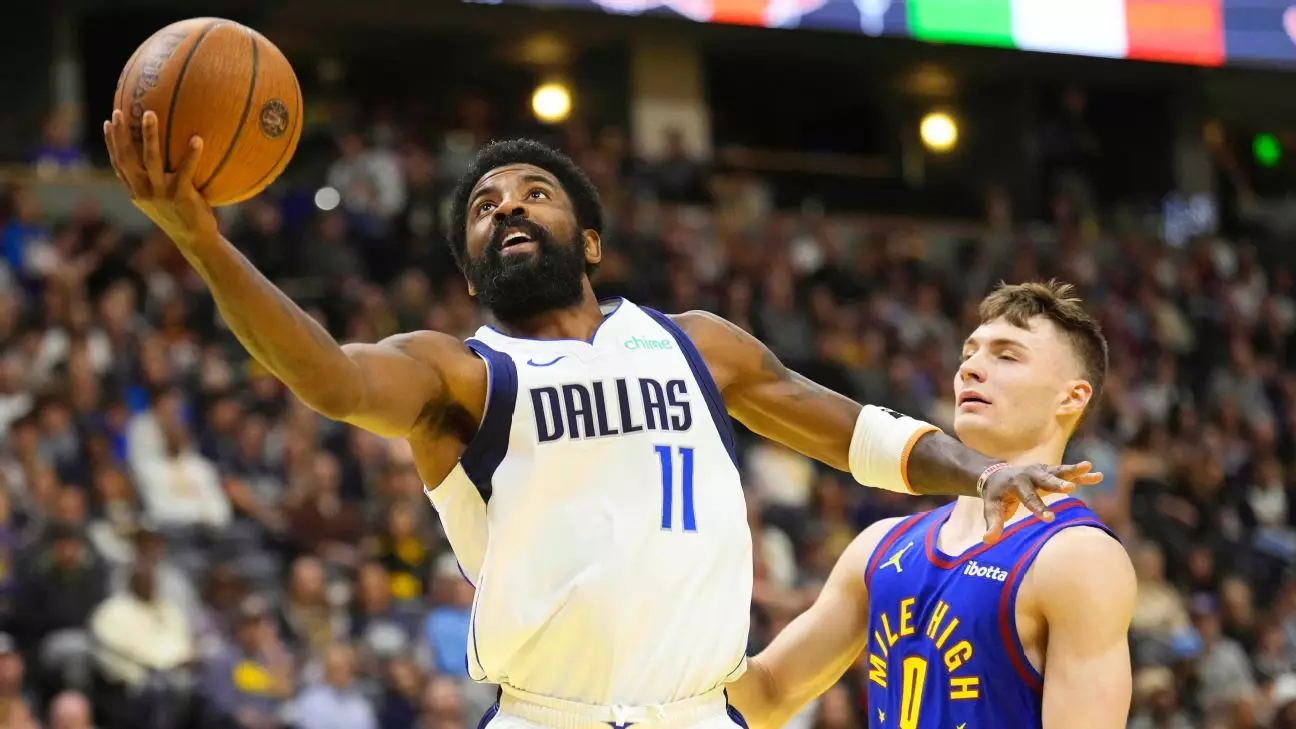The Dallas Mavericks encountered a setback recently when star player Kyrie Irving returned to the court following a five-game hiatus due to injury. His highly anticipated return met with disappointment when he struggled significantly, scoring just 11 points with an alarming shooting percentage of 22% during the team’s loss to the Denver Nuggets. This performance underscored the difficulties athletes face when returning to competition after injury, particularly in Irving’s case, where a bulging disk in his lower back has now become a significant concern.
Irving openly shared his frustrations about this injury, stating, “The last almost two weeks have sucked.” Such candidness sheds light on the mental as well as physical toll that injuries can exert on players. For Irving, the pain was so intense that it hindered him to the extent that he couldn’t meditate, an activity he usually finds restorative. The psychological impact of being sidelined, coupled with the physical challenges of recovering from a bulging disk, complicates his path back to form.
Initially listed simply as a lumbar sprain by the Mavericks, the gravity of Irving’s condition became clear only after further medical assessments, revealing the bulging disk. Such injuries are often notorious for their unpredictability and can lead to significant discomfort, affecting not just the lower back but also adjacent areas like the hamstring. This amplifies the complexity of recovery, as the associated pain can deliver unexpected roadside detours in an athlete’s path to rehabilitation.
Irving’s case is an illustrative example of how injury narratives often disrupt not only a player’s performance but also a team’s chemistry and competitiveness. With the Mavericks already missing star player Luka Doncic, the team struggled to maintain its competitiveness with both key players sidelined intermittently. Irving himself has expressed gratitude that surgery is not immediately required, yet there remains an ongoing concern for effective management of the condition through rigorous medical care and personal commitment to maintaining wellness.
Despite these challenges, Irving is determined to push through and manage his injury: “I just got to be very smart about it,” he commented. His intention to compete in the back-to-back game against the New Orleans Pelicans reflects not only his competitive spirit but also raises questions regarding the long-term sustainability of such risks. While it is commendable for players to wish to return swiftly to their craft, the consequences of inadequate recovery can ripple through their careers.
As the Mavericks navigate this difficult terrain, they will need to rely on both Irving’s resilience and a comprehensive support system from their medical staff. Moreover, the dynamic of the team hinges on the return of Luka Doncic and the management of injuries like Irving’s, emphasizing the fragility of athlete performance and the constant balancing act between pushing limits and respecting physical boundaries. In facing these adversities, the Mavericks must plot a cautious yet determined course towards recovery, ensuring that they safeguard their star assets for sustained success in the season ahead.

